Drawing Of Tectonic Plates
Drawing Of Tectonic Plates - Students draw and interpret topographic maps while learning about technology used to map earth's surface, the seafloor, and other worlds. Web on the diagram below, draw arrows in the boxes to indicate the direction of plate movement. Explore how plates move on the surface of the earth. Web earth’s lithosphere, or outermost shell, is broken up into large pieces called tectonic plates. Web plate tectonics is a scientific theory that explains how major landforms are created as a result of earth’s subterranean movements. On average, tectonic plates move a few centimeters per year. A plate boundary is where two tectonic plates meet. Indian plate and australian plate) the north american plate. And, how movements of these plates produce earthquakes, volcanoes, ocean trenches, mountain ranges, and more. Introduction to teaching plate tectonics. Scrape the excess magma into the tub and see if you can recreate the hawaiian island chain! The goals of this chapter are to: The theory, which solidified in the 1960s, transformed the earth sciences by explaining many phenomena, including mountain building events, volcanoes, and earthquakes. Students will examine divergent, convergent, and transform plate boundaries. Identify types of plate boundaries. These plates move and interact with one another to produce earthquakes , volcanoes , mountain ranges, ocean trenches and other geologic processes and features. Web there are seven major tectonic plates: In plate tectonics, earth’s outermost. A plate boundary is where two tectonic plates meet. Web the map above shows names and generalized locations of earth's major tectonic plates. Web plate tectonics is a scientific theory that explains how major landforms are created as a result of earth’s subterranean movements. These plates move slowly over the asthenosphere, a layer of softer rock below the lithosphere. Use this map gallery to better understand how plate tectonics created the ocean and continents we are familiar with today. Discover how to create. Web we recommend using the latest version of chrome, firefox, safari, or edge. Tectonic plates, or lithospheric plates, are constantly moving, being created, and consumed simultaneously. Students draw and interpret topographic maps while learning about technology used to map earth's surface, the seafloor, and other worlds. Assess the basic lines of evidence supporting plate tectonics. Use this map gallery to. There are three types of plate boundaries: Use this map gallery to better understand how plate tectonics created the ocean and continents we are familiar with today. Web we recommend using the latest version of chrome, firefox, safari, or edge. The arrows on the map show the direction the plates are moving. Indian plate and australian plate) the north american. Web updated on january 30, 2020. These plates move and interact with one another to produce earthquakes , volcanoes , mountain ranges, ocean trenches and other geologic processes and features. The arrows on the map show the direction the plates are moving. Web tectonic plates are composed of the oceanic lithosphere and the thicker continental lithosphere, each topped by its. Web updated on january 30, 2020. The theory, which solidified in the 1960s, transformed the earth sciences by explaining many phenomena, including mountain building events, volcanoes, and earthquakes. Web on the diagram below, draw arrows in the boxes to indicate the direction of plate movement. Web the map above shows names and generalized locations of earth's major tectonic plates. Explore. Web there are seven major tectonic plates: Use this model to start from scratch. The theory, which solidified in the 1960s, transformed the earth sciences by explaining many phenomena, including mountain building events, volcanoes, and earthquakes. There are three types of plate boundaries: These plates move slowly over the asthenosphere, a layer of softer rock below the lithosphere. Explore how plates move on the surface of the earth. Indian plate and australian plate) the north american plate. Then, draw the motion of the magma. 8.challenge: Web the map above shows names and generalized locations of earth's major tectonic plates. In plate tectonics, earth’s outermost. Tectonic plates, or lithospheric plates, are constantly moving, being created, and consumed simultaneously. Web plate tectonics is a scientific theory that explains how major landforms are created as a result of earth’s subterranean movements. Indian plate and australian plate) the north american plate. Web figure 13.1 shows a simplified map of earth’s current major tectonic plates and their boundaries. Web. Tectonic plates, or lithospheric plates, are constantly moving, being created, and consumed simultaneously. Web students will examine plate boundaries, continents, and oceans on a globe. Web the map above shows names and generalized locations of earth's major tectonic plates. Web tectonic plates are composed of the oceanic lithosphere and the thicker continental lithosphere, each topped by its own kind of crust. On the diagram below, draw arrows in the boxes to indicate the direction of plate movement. The hot spot stayed still and made a line (a series) of mountains in the ocean, which we call the Use this map gallery to better understand how plate tectonics created the ocean and continents we are familiar with today. Change temperature, composition, and thickness of plates. Students will draw plate boundaries on a map and learn that more scientific data are needed to more accurately locate certain boundaries. Plate motion is driven by heat escaping from the mantle. Convergent (colliding) boundaries are shown as a black line with teeth, divergent (spreading) boundaries as solid red lines, and transform (sliding alongside) boundaries as solid black lines. Web plate tectonics is a theory about how earth's lithosphere is divided into a series of rigid plates; Web we recommend using the latest version of chrome, firefox, safari, or edge. 1m views 10 years ago exploring earth science. Students draw and interpret topographic maps while learning about technology used to map earth's surface, the seafloor, and other worlds. The place where two plates meet is called a plate boundary.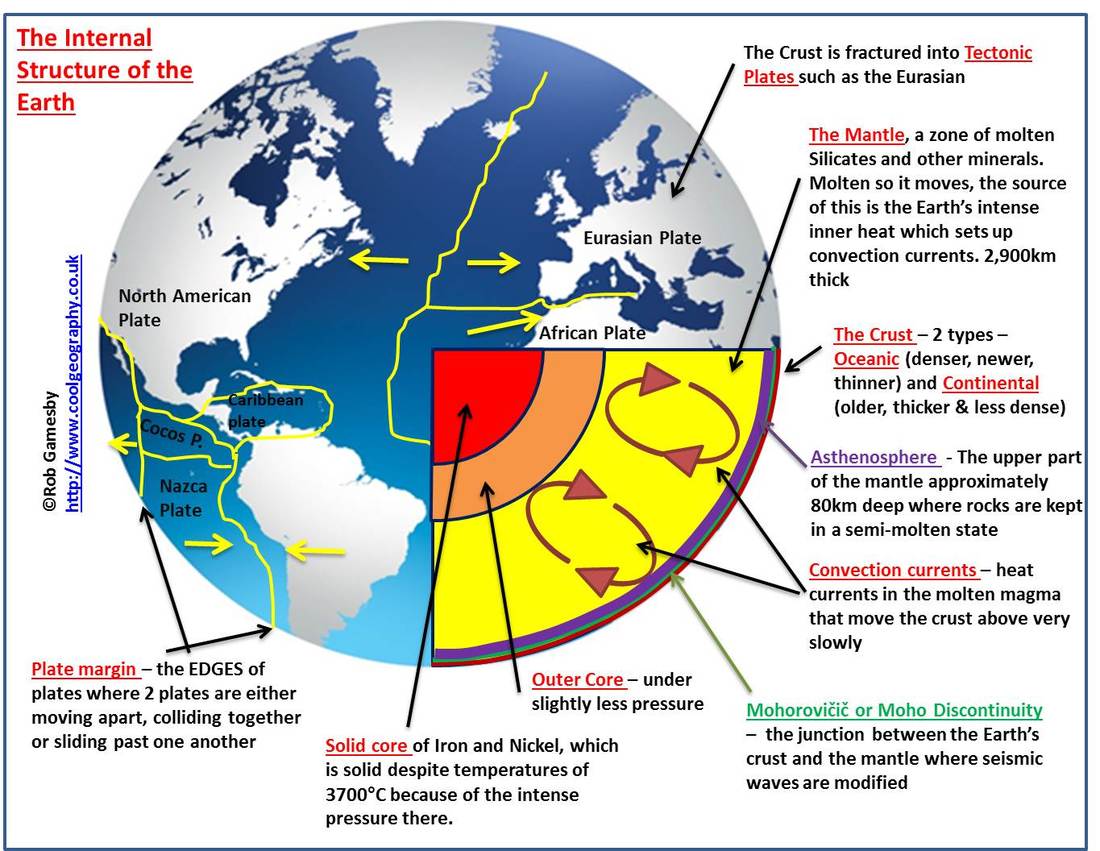
Plate tectonics GEOGRAPHY MYP/GCSE/DP
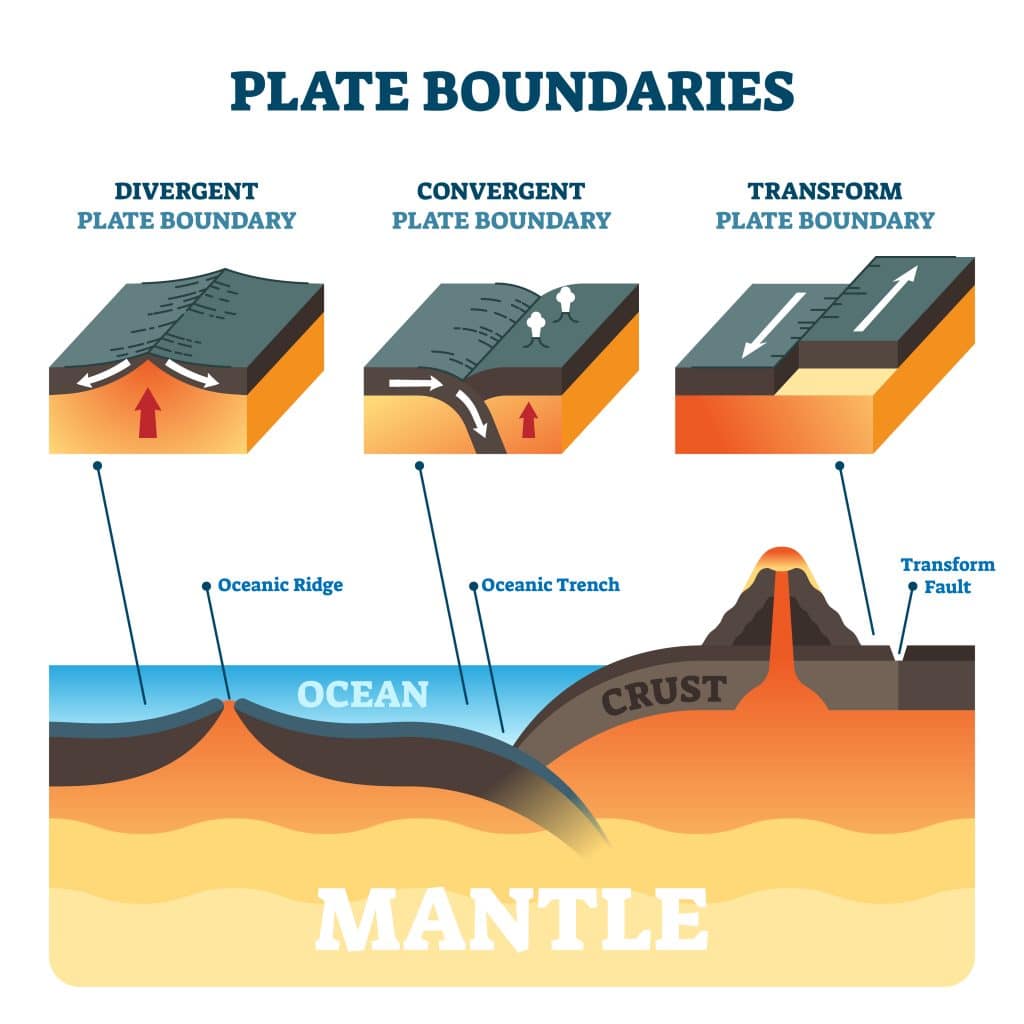
Section 4 The Theory of Plate Tectonics Nitty Gritty Science
:max_bytes(150000):strip_icc()/tectonic-plates--812085686-6fa6768e183f48089901c347962241ff.jpg)
A Map of Tectonic Plates and Their Boundaries
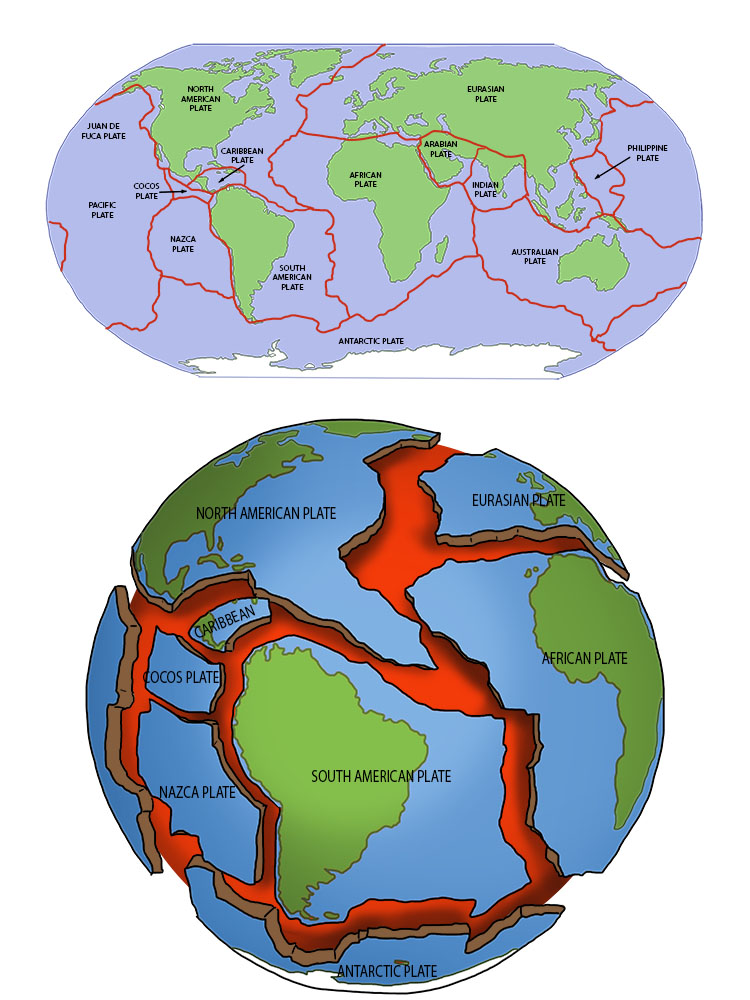
Tectonic Plates Geography Mammoth Memory Geography
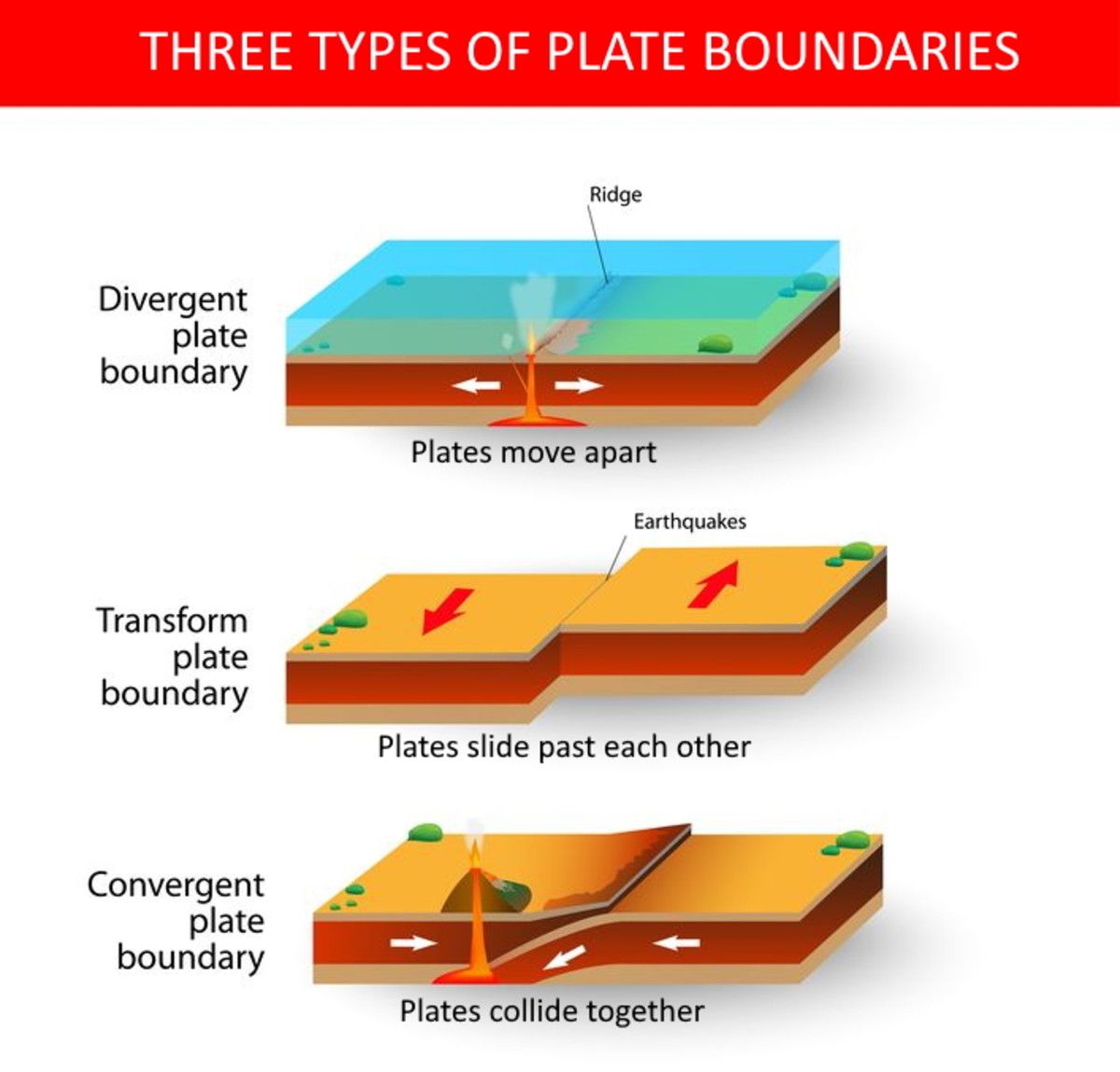
Evolution of the Theory of Plate Tectonics Owlcation
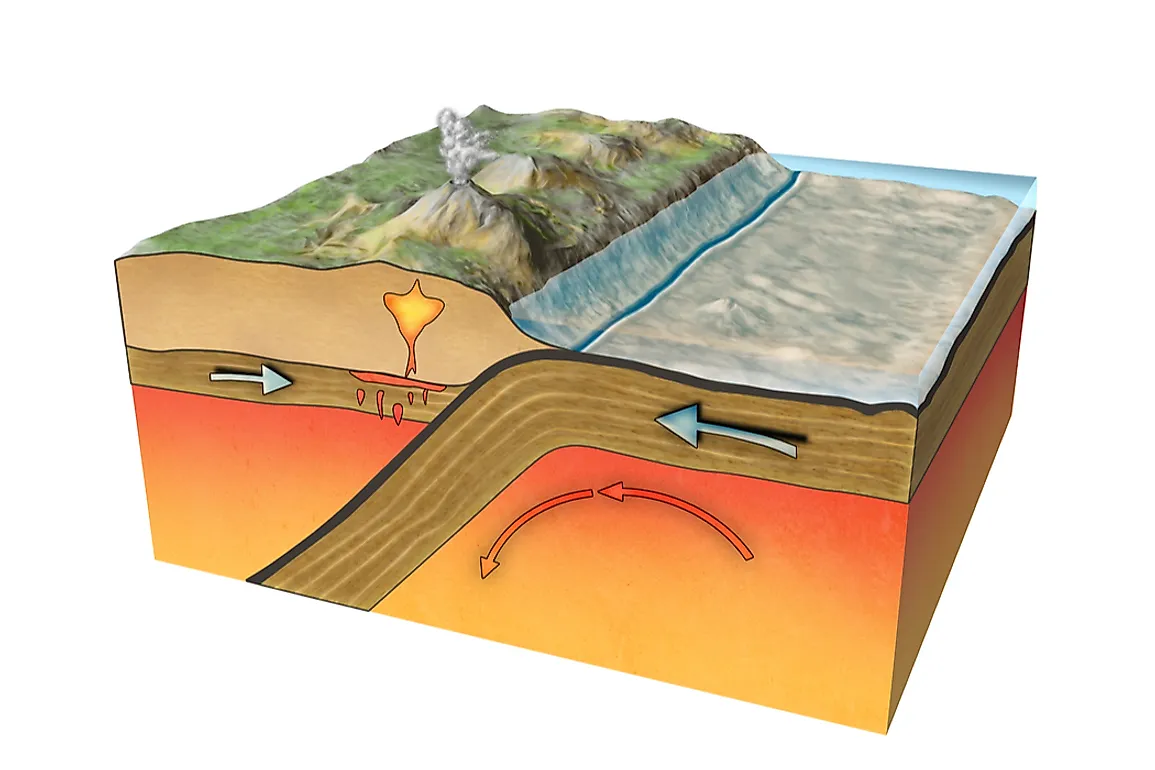
How Do Tectonic Plates Move? WorldAtlas

2 Schematic representation of the three types of plate boundaries
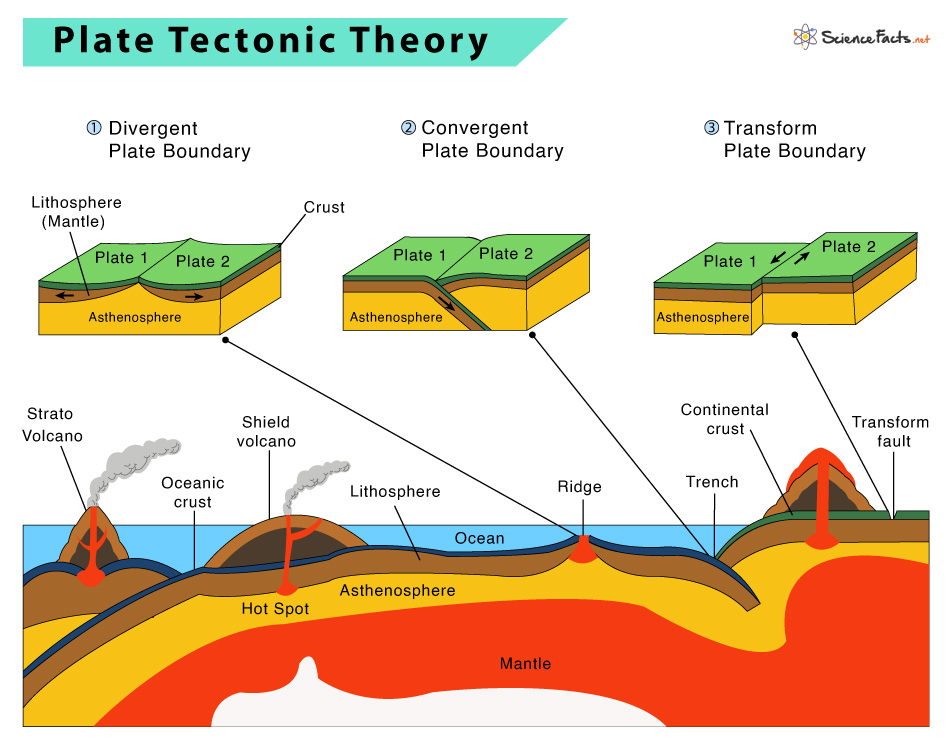
Plate Tectonics Definition, Theory, Types, Facts, & Evidence
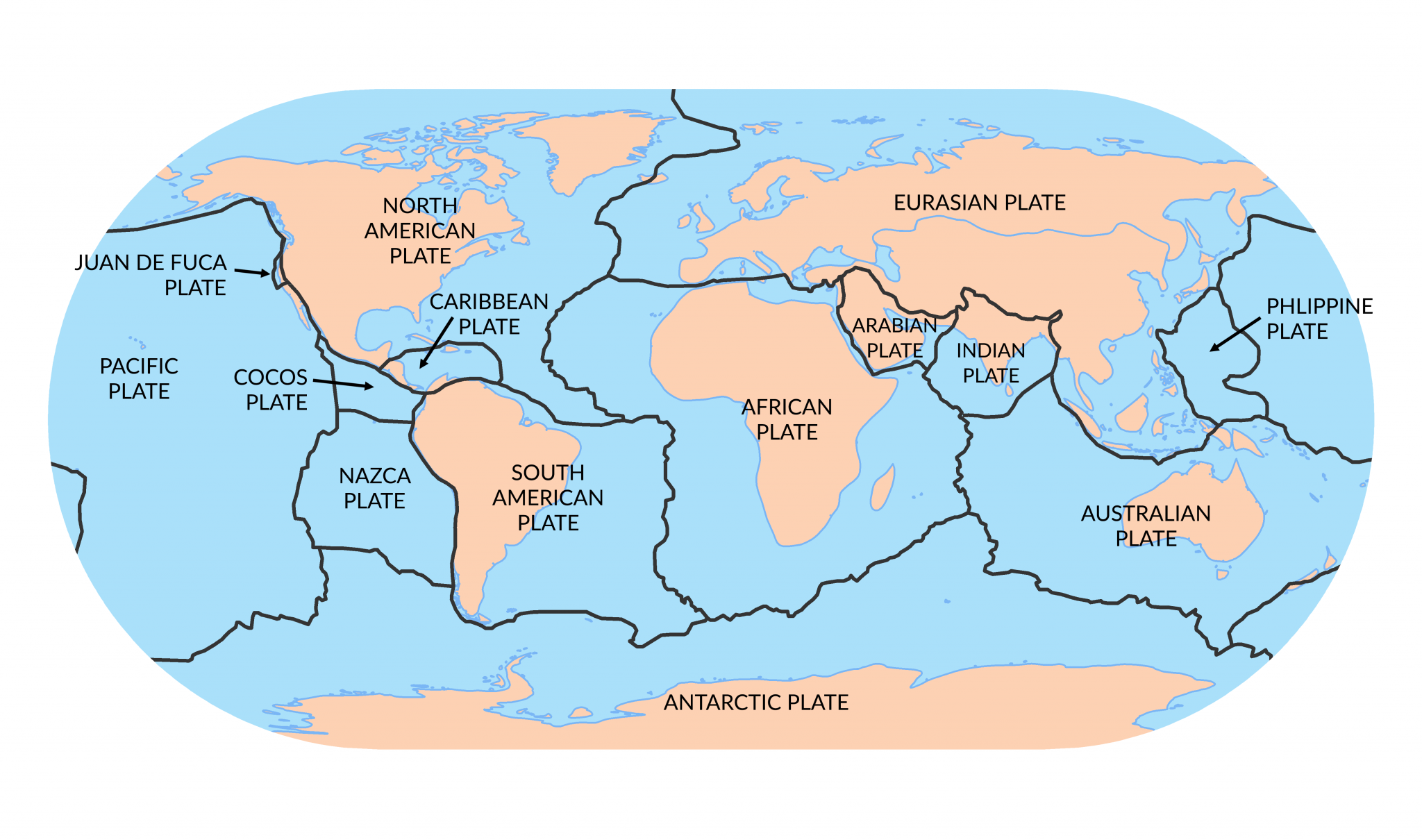
Plate Tectonic Types Divergent, Convergent and Transform Plates
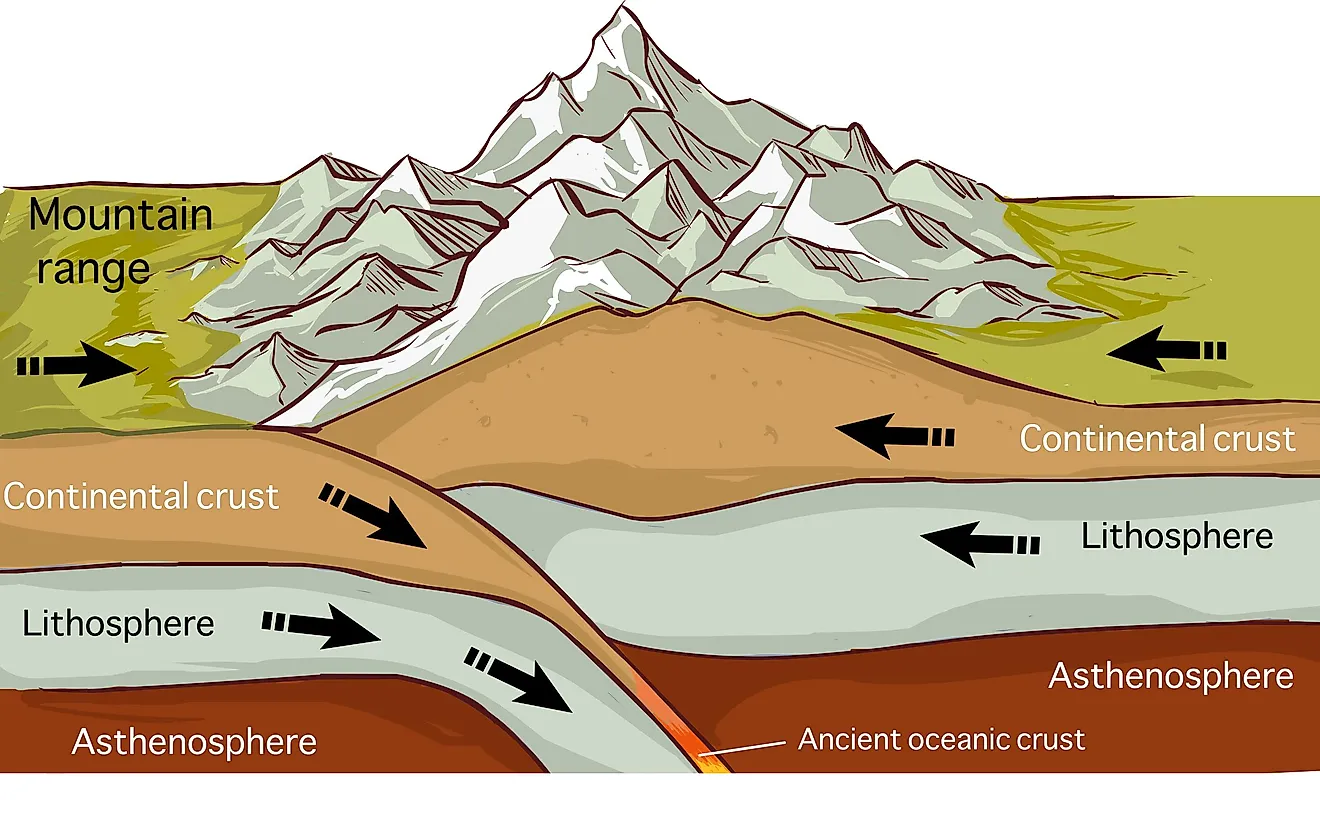
What Causes Tectonic Plates To Move? WorldAtlas
Introduction To Teaching Plate Tectonics.
Scrape The Excess Magma Into The Tub And See If You Can Recreate The Hawaiian Island Chain!
Web Figure 13.1 Shows A Simplified Map Of Earth’s Current Major Tectonic Plates And Their Boundaries.
Assess The Basic Lines Of Evidence Supporting Plate Tectonics.
Related Post: